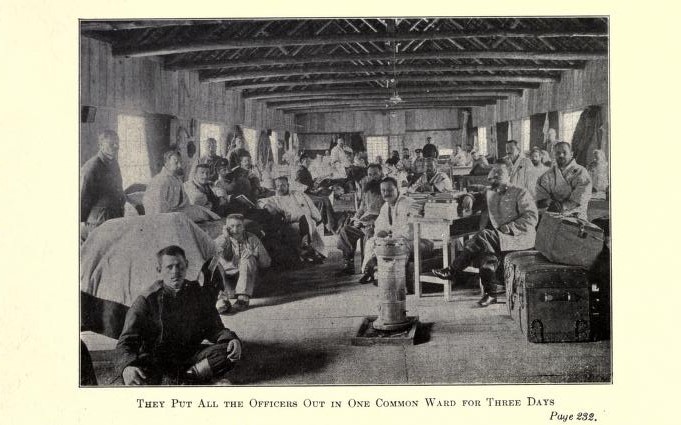‘Railway Man’ a Contrast to Scidmore POW Book
 My husband and I recently watched “The Railway Man,” starring Colin Firth and Nicole Kidman. It’s emotionally powerful, and interesting as well in light of my biography of Eliza Scidmore.
My husband and I recently watched “The Railway Man,” starring Colin Firth and Nicole Kidman. It’s emotionally powerful, and interesting as well in light of my biography of Eliza Scidmore.
Her last book was As the Hague Ordains. Written as a thinly disguised novel, it looked at POW conditions in Japan in 1905 during the Russo-Japanese War. “The Railway Man” tells the true story of Japanese treatment of a British Army officer captured in Singapore during World War II.
Together, the two stories present a sharp contrast.
Eliza Scidmore was in the Far East when the war between Japan and Russia broke out. International accords on POW treatment had been adopted a few years earlier, so she wanted to investigate the issue.
Prison Conditions
She decided to report on how Japan treated its Russian prisoners. To do so, she got permission from the Japanese government to visit some prison camps where Russian soldiers were being held. She wrote that their treatment was quite humane. Even local Japanese citizens acted kindly toward the imprisoned men, tossing cigarettes, sweets, and other treats to them over the prison walls.

Photograph of prisoner-of-war camp in Japan, from “As the Hague Ordains” (Henry Holt and Co., 1907)
In the end, Scidmore said she found the issue too complex to describe in a magazine article. So she turned her findings into a novel. It tells the story from the point of view of a Russian officer’s wife who goes to the bedside of her wounded husband in Japan.
“The Railway Man” takes place 40 years later. The main character, Eric Lomax, works in hellhole conditions as one of thousands of Allied POWs sent to build the Thai/Burma railway. He cobbles together a secret radio to bring news and hope to his colleagues. When it’s discovered, he’s accused of being a spy and brutally tortured.
Back home in Scotland, the experience has left him traumatized. Further deepening the emotional plot, his fragile condition threatens a late-in-life marriage that offers a chance at happiness.
After learning that the young Japanese officer who tormented him is still alive, Lomax sets out to confront him.
Not an easy movie to watch. But a compelling story of human drama and historical insight.